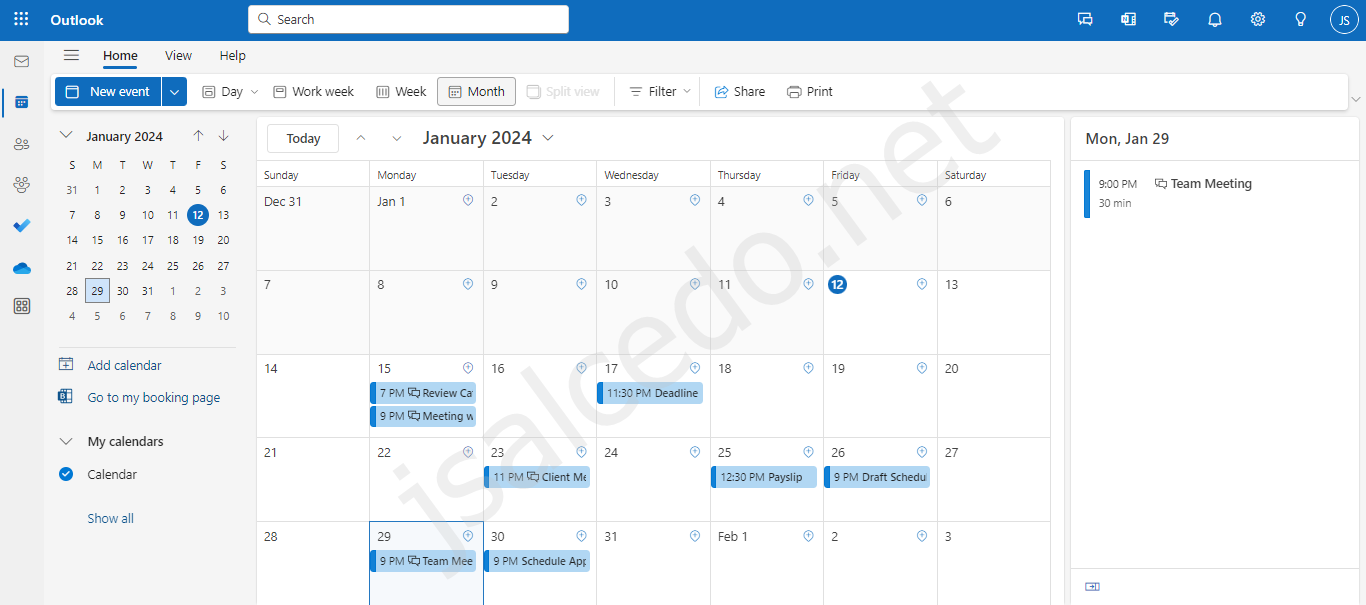Email management refers to the process of handling and organizing emails in an efficient and effective manner.
It involves various tasks and strategies aimed at maintaining a structured and streamlined approach to dealing with emails.
Effective email management is crucial for individuals and organizations to ensure that communication is organized, accessible, and doesn’t become overwhelming.
Here are some key aspects of email management:
Inbox Organization
- Folders and Labels: Creating folders or labels can help categorize emails based on different criteria, such as projects, clients, or topics.
- Filters: Setting up filters to automatically sort incoming emails into specific folders can save time and keep the inbox organized.
Prioritization
- Flagging or Marking: Use flags, stars, or other markers to highlight important emails that require attention.
- Priority Inbox: Some email providers offer features like a priority inbox, which automatically categorizes important emails.
Delegation and Assignment
- Assigning Tasks: For work-related emails, delegate tasks or assign responsibilities directly through email.
- Follow-Up Flags: Utilize flags or reminders to follow up on important emails or pending tasks.
Time Management
- Scheduled Check-ins: Instead of constantly checking emails, set specific times to check and respond to them to avoid distractions.
- Batch Processing: Group similar tasks together and address them during designated time blocks.
Unsubscribe and Filtering
- Unsubscribe from Unnecessary Emails: Regularly review and unsubscribe from newsletters or notifications that are no longer relevant.
- Spam Filtering: Ensure that spam filters are active to reduce the influx of unwanted emails.
Archiving and Deleting
- Archiving: Archive important emails for future reference, freeing up space in the primary inbox.
- Deleting Unnecessary Emails: Regularly delete emails that are no longer needed to prevent inbox clutter.
Search and Retrieval
- Effective Search Techniques: Learn and use search functions to quickly locate specific emails.
- Proper Naming Conventions: Use clear and consistent subject lines for easy retrieval.
Security and Confidentiality
- Secure Communication: Be mindful of sensitive information and use secure channels when necessary.
- Encryption: Employ encryption for confidential emails to protect them from unauthorized access.
Email Etiquette
- Clear Communication: Craft concise and clear emails to minimize back-and-forth communication.
- Response Time: Strive to respond to emails in a timely manner, especially for time-sensitive matters.
Effective email management is a skill that can significantly improve productivity, reduce stress, and enhance communication efficiency in both personal and professional settings.
Why do I need a Virtual Assistant to manage my emails?
With a virtual assistant to manage your emails can offer several benefits, especially if you find yourself overwhelmed by the volume of messages or if you have a busy schedule.
Here are some reasons why you might consider employing a virtual assistant for email management:
Time Efficiency
A virtual assistant can handle routine tasks such as sorting and filtering emails, flagging important messages, and organizing your inbox.
This frees up your time to focus on more strategic or high-priority activities.
Task Automation
Virtual assistants can automate repetitive tasks, such as sending standard responses, archiving emails, or categorizing messages into folders.
This helps streamline your email workflow.
Appointment Scheduling
Some virtual assistants can integrate with your calendar and help schedule appointments or meetings based on your availability.
This can eliminate the back-and-forth communication typically involved in scheduling.
Reminder Services
Virtual assistants can set reminders for important emails or tasks, ensuring that nothing important slips through the cracks.
This is particularly useful for follow-ups or time-sensitive communications.
Filtering and Prioritization
Virtual assistants can learn your preferences and priorities, automatically filtering and prioritizing emails based on your criteria.
This ensures that you see and address the most important messages first.
Search and Retrieval Assistance:
Virtual assistants equipped with advanced search capabilities can quickly find specific emails or information within your inbox, saving you time on manual searches.
Integration with Other Tools:
Some virtual assistants seamlessly integrate with other productivity tools and applications, providing a centralized hub for managing various aspects of your workflow.
Multitasking Capability:
Virtual assistants can handle multiple tasks simultaneously, such as responding to emails, setting reminders, and updating your calendar.
This multitasking capability can be especially helpful during busy periods.
24/7 Availability
Virtual assistants are available around the clock, allowing for continuous monitoring and management of your emails, even when you are not actively working.
Reducing Email Overwhelm
If you receive a large volume of emails, a virtual assistant can help prevent email overwhelm by systematically organizing and prioritizing messages, allowing you to approach your inbox with a clearer focus.
While a virtual assistant can be a valuable tool for email management, it’s important to choose one that aligns with your specific needs and preferences.
Additionally, maintaining a level of oversight and regularly reviewing automated processes can help ensure that your virtual assistant is working in harmony with your unique requirements.
